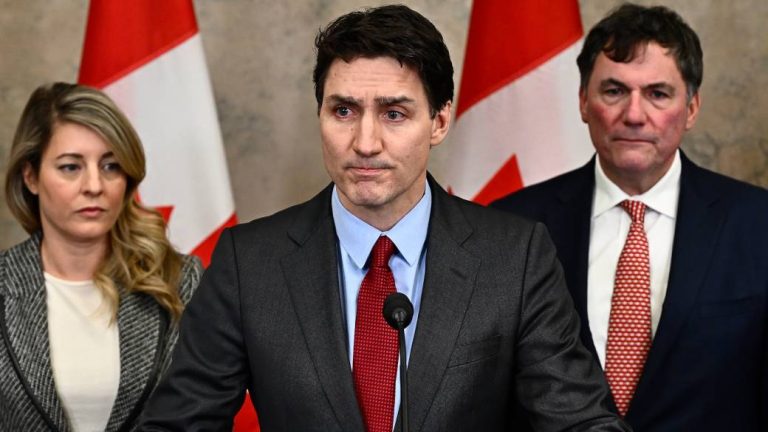
U.S. Elections: Unpacking the Key Issues from the Recent CNN Presidential Debate
As the 2024 U.S. presidential election approaches, the recent CNN-organized debate between President Joe Biden and former President Donald Trump has ignited critical questions regarding Biden’s performance, Vice President Kamala Harris’s role, and the Democratic Party’s overall strategy. This debate is set to shape the narrative leading up to the election, highlighting crucial concerns that will influence voter decisions.
President Biden’s performance during the CNN debate raised questions about whether it was an isolated incident or indicative of a broader decline due to age. Critics argue that such performances could signal worsening cognitive abilities, casting doubt on his capability to effectively lead the nation through another term. This concern extends beyond the present, questioning Biden’s future abilities as he continues to age. The implications of his performance are not just limited to policy and governance but extend to national security and global diplomacy, where strong, decisive leadership is crucial.
The Democratic Party’s apparent lack of a clear succession plan at this late stage has drawn significant criticism. Even if Biden manages to navigate his current challenges, the absence of a well-prepared successor highlights potential strategic oversights within the Democratic National Committee (DNC). The party’s failure to present a viable alternative candidate at this point could be detrimental to its long-term prospects. This gap in planning is particularly concerning given the intense political environment and the need for the Democrats to present a unified and robust front.
The Democratic Party’s apparent lack of a clear succession plan at this late stage has drawn significant criticism
Vice President Kamala Harris’s role in the administration is another focal point of concern. Many Americans are uneasy about the prospect of Harris stepping in as president if Biden’s term is cut short. Questions about her leadership abilities and what she brings to the table add to the anxiety surrounding the current administration. Harris’s capacity to unify and effectively lead the nation remains a contentious issue. Her tenure as Vice President has been marked by both support and criticism, with some viewing her as a trailblazer and others questioning her readiness for the presidency. This uncertainty adds another layer of complexity to the 2024 election dynamics.
A Biden-Harris administration sends a complex message about the United States’ position on the global stage. Some argue that it signals a shift in the dynamics of American power, with perceptions that the once-dominant superpower is experiencing a change in status. This evolving perception is something the U.S. must navigate carefully to maintain its influence and leadership internationally. The changing dynamics of global power require a steady and coherent foreign policy, which is challenged by internal political uncertainties. How the Biden-Harris administration addresses these challenges will be crucial in shaping America’s global standing.
Americans have historically shown loyalty to their ideological beliefs even in the face of strong opposition. However, the current political landscape, characterized by dissatisfaction with the available candidates, might lead to a higher rate of voter abstention. This scenario underscores the need for both parties to present compelling candidates who can inspire voter turnout and engagement. The risk of voter disengagement is a significant threat to the democratic process, as it can lead to governance that does not accurately reflect the will of the people. Encouraging voter participation is essential for a healthy democracy.
The Democrats must demonstrate deeper capacity and preparation soon. With only four years between elections, the party needs to develop a robust strategy and begin fielding strong candidates to maintain its competitive edge. The urgency for a well-prepared and charismatic candidate who can capture the public’s imagination cannot be overstated. The future of the Democratic Party hinges on its ability to innovate and connect with a broad spectrum of voters, addressing their concerns and aspirations effectively.
The peculiar situation regarding Trump’s candidacy adds another layer of complexity. Despite being a convicted felon, Trump can still campaign and be elected president, highlighting a unique aspect of American electoral laws. This paradox raises important questions about the legal and ethical frameworks governing political participation in the U.S. The situation challenges traditional notions of eligibility and integrity in political candidacy, prompting a re-examination of the laws that govern electoral participation.
Trump’s performance in the CNN debate, while equally disastrous as Biden’s, aligns with his established tactics and approach. This consistency resonates with his base, showcasing the fierce loyalty of Trump supporters. The unwavering support he enjoys poses a significant challenge for his opponents and remains a crucial factor in the upcoming election. Trump’s ability to galvanize his base and drive voter turnout cannot be underestimated, and his influence will likely play a pivotal role in the election’s outcome.
As Biden stands firm and Trump intensifies his campaign, the 2024 elections promise to be record-making and legendary. The political landscape is poised for dramatic developments, and the world watches with keen interest as these events unfold. The stakes are high, and the outcomes of these elections will undoubtedly shape the future of American politics and its role on the global stage. The 2024 election will be a defining moment for the United States, determining its path forward in an increasingly complex and interconnected world.
__________________________
Tolu Opayinka is a Senior Fellow at the Sixteenth Council



